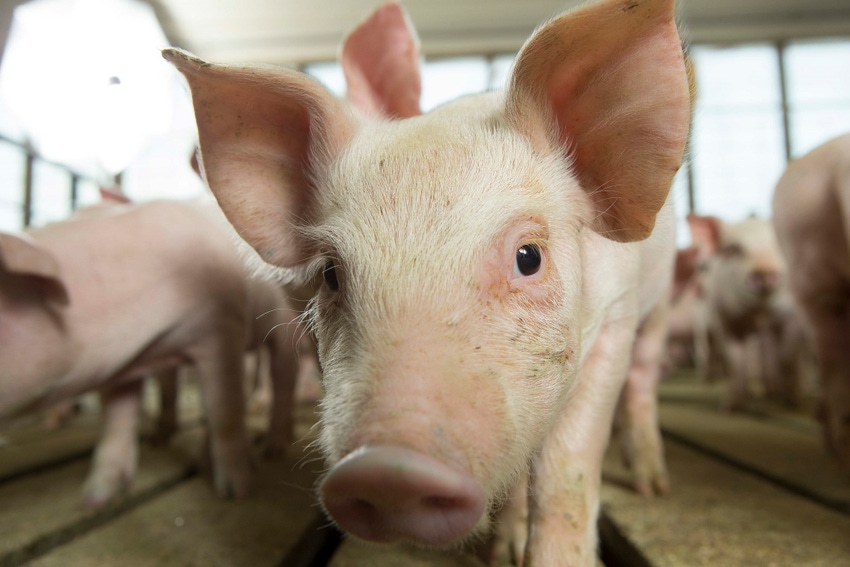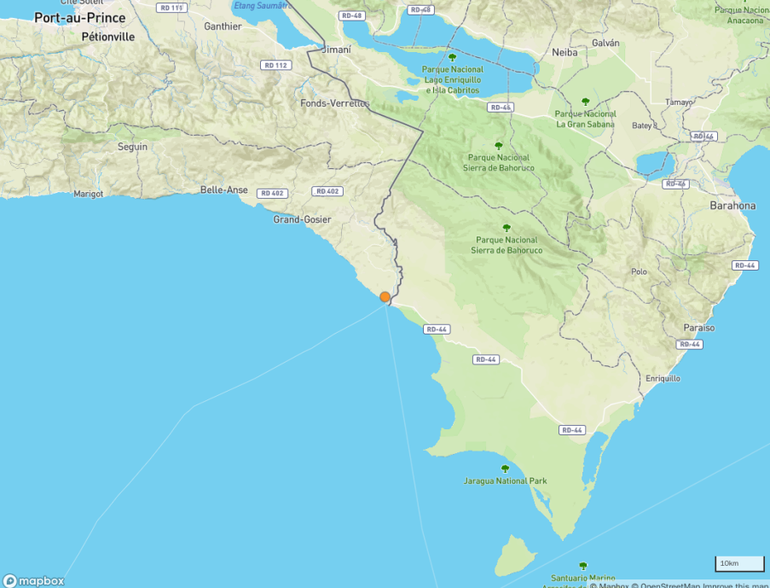Detection not unexpected given recent cases in the Dominican Republic.
September 22, 2021

On September 20, the Chief Veterinary Officer in Haiti reported a positive case of African swine fever to the World Organization for Animal Health. The disease was detected in a 2,500-head herd in Anse-à-Pitre, a province bordering the Dominican Republic. The sample was tested by the U.S. Department of Agriculture’s National Veterinary Services Laboratories through a cooperative testing program.
While unfortunate, USDA said the detection is not unexpected due to the recent cases of ASF in the Dominican Republic. USDA’s Animal and Plant Health Inspection Service is committed to assisting both Haiti and the Dominican Republic in dealing with ASF and continues to consult with animal health officials in both countries to support response and mitigation measures.

While speaking at the National Association of State Agriculture Departments the day following the confirmed report in Haiti, Secretary of Agriculture Tom Vilsack says USDA does not yet know how extensive the situation is in Haiti. “Our belief is it’s more widespread than perhaps we know today,” Vilsack cautions.
USDA is looking to be aggressive in aiding in eradication efforts in both Haiti and the Dominican Republic and offering assistance to those countries in the Western Hemisphere to limit any potential of spreading to the United States.
Dominican Republic and Haiti farmers and producers don’t have the technical assistance or financial wherewithal to eradicate the disease in a way that mitigates the consequences to their producers, while at the same time quickly eradicates the disease which is currently the only known way to limit spreading, Vilsack says.
“We’re going to have to basically provide the technical assistance and resources to enable the Dominican Republic and Haiti to respond quickly and to do a thorough and complete job of eradication,” Vilsack adds.
APHIS has numerous interlocking safeguards in place to prevent ASF from entering the United States. Pork and pork products from the Haiti and the Dominican Republic are already prohibited entry to the U.S. as a result of existing classical swine fever restrictions. After ASF was detected in the Dominican Republic, APHIS increased surveillance and safeguards in U.S. territories. These safeguards will also help prevent the spread of ASF to the U.S. from Haiti.
APHIS continues to work diligently with partners including the Department of Homeland Security’s U.S. Customs and Border Protection and the U.S. swine industry to prevent ASF from entering the United States. CBP is increasing inspections of flights from Hispaniola to ensure travelers do not bring prohibited products to the United States. CBP will also ensure that garbage from these airplanes is properly disposed of to prevent the transmission of ASF.
On August 26, APHIS announced its intent to establish a foreign animal disease protection zone in Puerto Rico and the U.S. Virgin Islands. ASF has not been detected in Puerto Rico or the U.S. Virgin Islands, and APHIS is committed to keeping it out of both islands and the rest of the United States. As part of the actions taken to create the protection zone, on September 17, APHIS issued a Federal Order suspending the interstate movement of all live swine, swine germplasm, swine products, and swine byproducts from Puerto Rico and the U.S. Virgin Islands to the mainland United States until APHIS can establish sufficient mitigations to authorize such movement. USDA is taking these actions out of an abundance of caution to further safeguard the U.S. swine herd and protect the interests and livelihoods of U.S. pork producers.
Vilsack adds the protective zone is important to reassure trading partners that at this point in time, the U.S. is doing everything possible to ensure ASF doesn't get into the U.S.
You May Also Like


.png?width=300&auto=webp&quality=80&disable=upscale)
